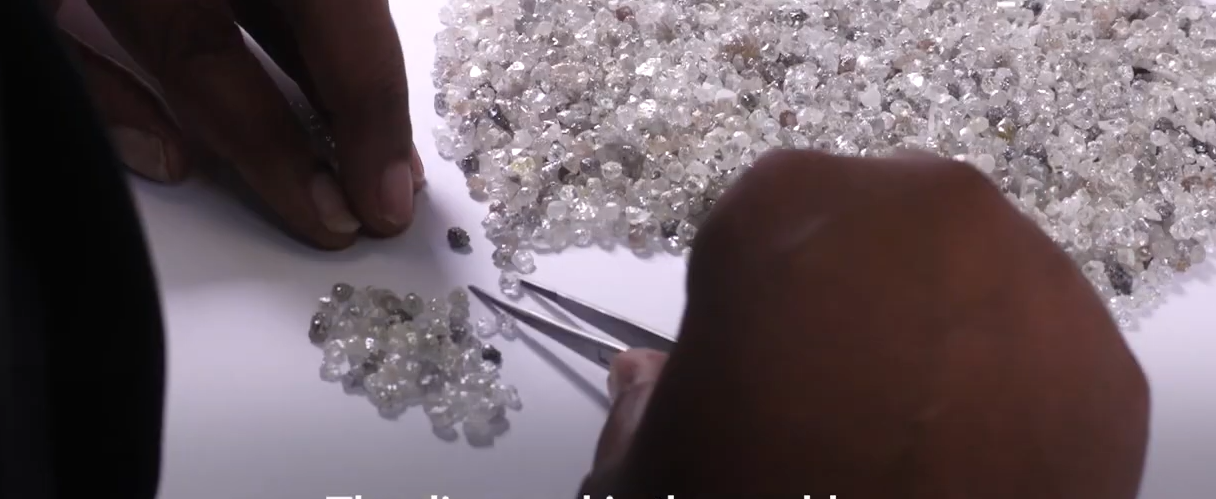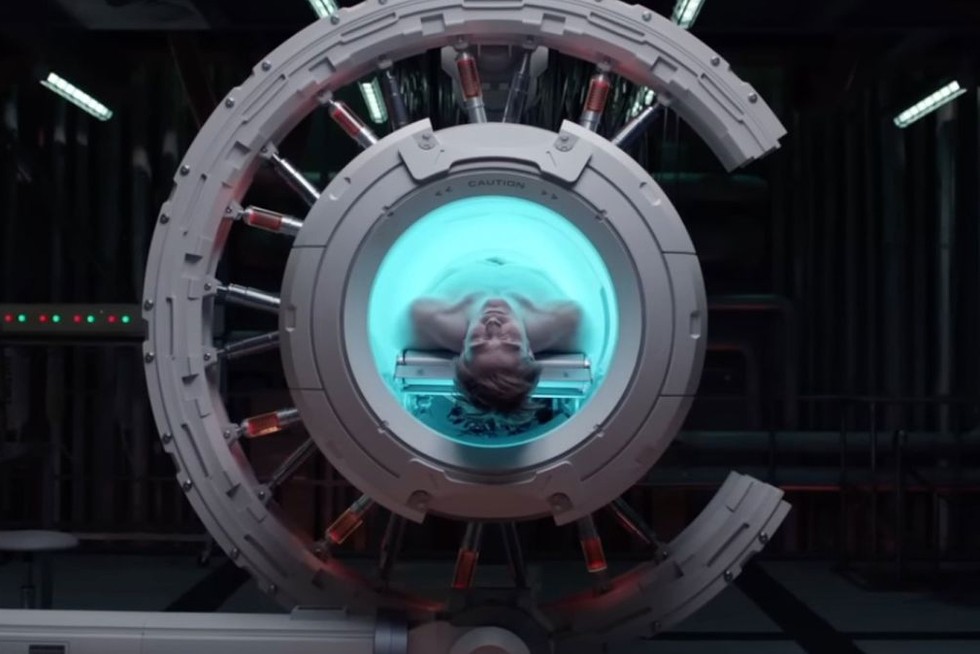If we elect Romney, we’ll be electing a Republican poster child of the investor class, and the old trickle-down economics crowd. In fact, the Chairman of the Board, as it were.
[Beneath The Spin]
Preaches ‘Voodoo Economics’ Decried By Bush
Every time the American people look at Mitt Romney they should get angry, because he’s the walking, breathing, personification of the biggest scam ever perpetrated on America, “trickle down” economics.
Mitt Romney is the very embodiment of trickle-down economics returning to rub our stupidity in our face, right down to his cynical pauses and sideways half-smile that seems to say, “Now, let’s see if you’re dumb enough to swallow this load of crap, yet again.” He’s such a cynical, insincere, and obvious con man that if he didn’t exist Saturday Night Live would have created him. Stiff and emotion free as Max Headroom, and just as contrived: “Yes, my good friends, and what I love most about your fair city is the height of the trees.” What!!!?
Trickle Down, or Supply- Side Economics, which came to be known as “Reaganomics,” was a scheme hatched by U.S.C. economist Arthur Laffer and the Reagan crowd which was supposed to cut the deficit and balance the budget. The theory behind Reaganomics was ostensibly: if you cut taxes for business and people in the upper tax brackets, and then deregulate business of such nuisances as safety regulations and environmental safeguards, the beneficiaries would invest their savings into creating new jobs. In that way the money would eventually “trickle down” to the rest of us. Sound familiar?
According to the scheme, the resulting broadened tax base would not only help to bring down the deficit, but also subsidize the tremendously high defense budget. When the plan was first floated, even George H.W. Bush, Reagan’s eventual vice president to be, called it “voodoo economics.”
Reaganomics, for the most part, sought to undo many of the safeguards put into place during the Roosevelt era and create a business environment similar to that which was in place during the Coolidge Administration. What actually took place, however, was even more like the Coolidge era than planned. Instead of taking the money and investing it into creating new jobs, the money was used in wild schemes and stock market speculation. One of these schemes, the leveraged buy out, involved buying up large companies with borrowed funds secured by the company’s assets, then paying off the loan by selling off the assets of the purchased company. This practice cost the citizens of this country millions of jobs, and the country its industrial base. In addition, the bottom fell out of the stock market. On Monday, October 19, 1987 the Dow-Jones Average fell 508.32 points. It was the greatest one-day decline since 1914 – fifteen years before the Great Depression.
Even though this scheme has brought economic disaster to the American people several times in the past 30 years, the Republican party continues to repackage it and trot it back out every eight years or so. They tend to wait until after the Democrats have rescued the nation, and their previous disaster has retreated from the collective memory of the American electorate.
Clear evidence of that is in spite of Ronald Reagan’s grandiose promise to balance the budget and lower the deficit, by the time he left office he was not only the most prolific spender of any president in history, but he also added more to the deficit than all of the other presidents from George Washington to his own administration combined.
Reagan tripled the national debt. It went from $712 billion in 1980 to $2.052 trillion in 1988. So what was the Republican Party’s plan to deal with that disaster? In it’s “contract with America” (Republicans are real good with slogans), Newt Gingrich’s Republican-run congress proposed a capitol gains tax cut, for the rich.
It took Democrat, Bill Clinton, to rescue the nation. David Greenberg, a professor of history and media studies at Rutgers University, said the following regarding Bill Clinton’s presidency:
“The Clinton years were unquestionably a time of progress, especially on the economy,” he wrote, adding “Clinton’s 1992 slogan, ‘Putting people first,’ and his stress on ‘the economy, stupid,’ pitched an optimistic if still gritty populism at a middle class that had suffered under Ronald Reagan and George H.W. Bush.” He also wrote, “By the end of the Clinton presidency, the numbers were uniformly impressive. Besides the record-high surpluses and the record-low poverty rates, the economy could boast the longest economic expansion in history; the lowest unemployment since the early 1970s; and the lowest poverty rates for single mothers, black Americans, and the aged.”
On September 27, 2000, CNN reported:
“President Clinton announced Wednesday that the federal budget surplus for fiscal year 2000 amounted to at least $230 billion, making it the largest in U.S. history and topping last year’s record surplus of $122.7 billion. ‘This represents the largest one-year debt reduction in the history of the United States.”
Then came George W. Bush, with his huge tax cuts for the rich, and re-instituting the Republican philosophy of trickle-down economics and reckless deregulation. That led to the 2008 economic crash, bringing the nation within a hair’s breath of a second Great Depression, and creating the conditions under which we are currently suffering.
The primary reason that the American people continues to be stiffed by the Republican Party is because the average American fails to understand that we don’t have just one economy, we have two. We have one economy that governs the prosperity of the investor class, and yet another that governs the prosperity of working class. Both classes are in direct competition for their part of the same economic pie.
Thus, the problem is, in order for the investor class to prosper, they must squeeze every penny and concession out of the working class. So when Wall Street is celebrating a robust economy, that means they are producing more product with fewer jobs, fewer work hours, and lower pay for the workers. That’s how they make their profit.
You see, in the past when the United States had a strong internal industrial base, the investor class and the working class complemented one another. The corporate community provided the working class with, essentially, lifetime jobs with solid security and a living wage. As a result, the working class could afford to purchase the goods and services that the corporations produced. So the working class and investor class had a symbiotic relationship. One insured the prosperity of the other.
But now, in the new global economy, where what used to be considered American corporations have become international conglomerates that have to compete with countries that are paying their workers less per week than most Americans spend on lunch per day, the American worker has become a liability. Thus, the corporate community has a vested interested in lowering the standard of living of the American middle class.
In order for them to make ever greater profits, they feel that they must squeeze every concession that they can get out of America, and the American worker. That accounts for the aggressive assault on our educational system. They need more worker bees and fewer thinkers – or trouble makers. It also accounts for the assault on collective bargaining, and all manner of corporate regulations and employee rights. In short, they’re on a mission to convert America from a democratic republic, to a corporate sweatshop.
Enter Mitt Romney. If we elect Romney, we’ll not just be electing a Republican politician who is highly sympathetic to the investor class, we’ll be electing, indeed, the poster child of the investor class, and the old trickle-down economics crowd and the predictable consequences. In fact, the Chairman of the Board, as it were (This is akin to willingly leaving a child with a notorious child abuser when the consequences are known).
The New York Post reported in the Josh Kosman article, “Romney’s Past is More a Working Class Zero,” that “Romney’s private equity firm, Bain Capital, bought companies and often increased short-term earnings so those businesses could then borrow enormous amounts of money. That borrowed money was used to pay Bain dividends. Then those businesses needed to maintain that high level of earnings to pay their debts.” But of course, the businesses generally couldn’t manage that, so workers were laid off and the business would go into bankruptcy.
The article goes on to list some of the businesses that Mitt Romney squeezed the profits from, then sent into bankruptcy:
[] Bain in 1988 put $5 million down to buy Stage Stores, and in the mid-’90s took it public, collecting $100 million from stock offerings. Stage filed for bankruptcy in 2000.
[] Bain in 1992 bought American Pad & Paper (AMPAD), investing $5 million, and collected $100 million from dividends. The business filed for bankruptcy in 2000.
[] Bain in 1993 invested $60 million when buying GS Industries, and received $65 million from dividends. GS filed for bankruptcy in 2001.
[] Bain in 1997 invested $46 million when buying Details, and made $93 million from stock offerings. The company filed for bankruptcy in 2003.
So say what you will about President Obama, but it seems to me that the credentials of Mitt Romney and his Republican cohorts’ as job creators makes the president look like Santa Claus. If you agree, go tell a hungry Republican. He might be Black, but that IS a pork chop in his hand.
“Speaking Truth To Empower.”

















